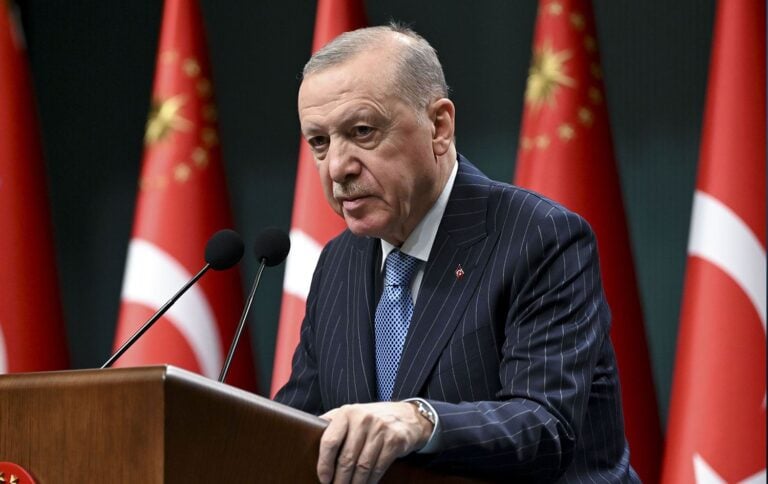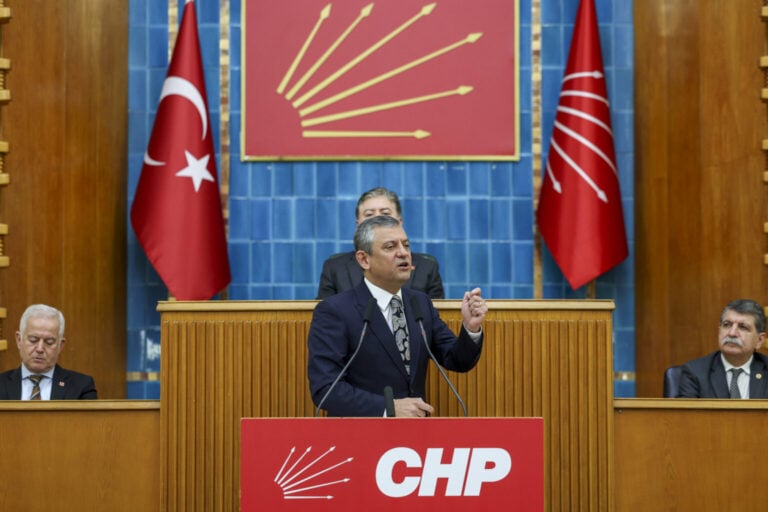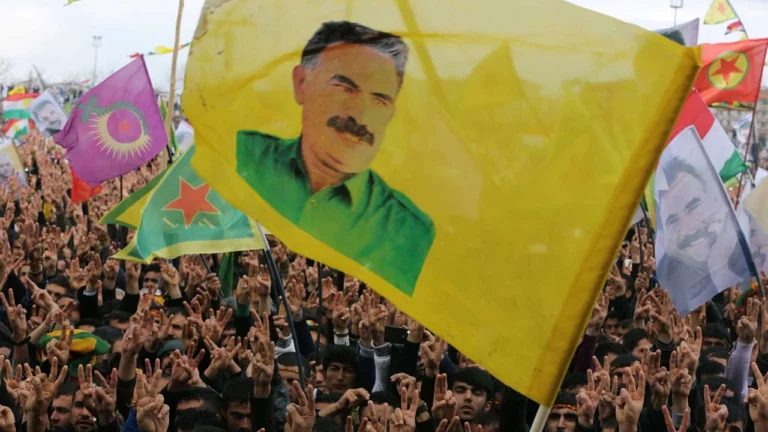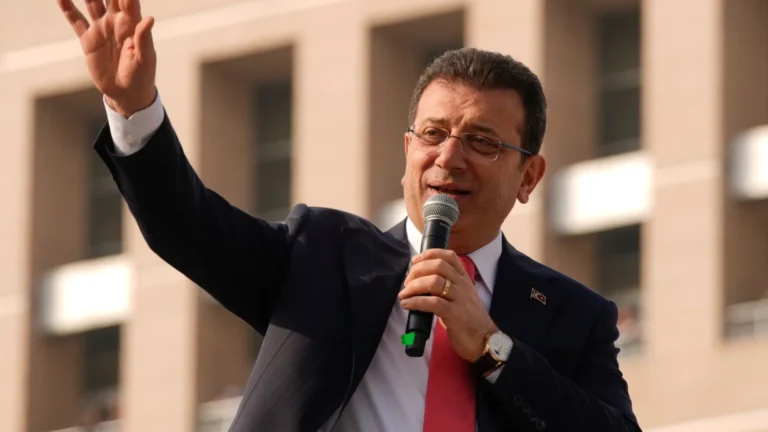In the lead-up to Sunday’s highly anticipated parliamentary and presidential elections, Medyascope correspondents have conducted street interviews with voters across Turkey’s 81 provinces. In several Kurdish-majority provinces deep in southeastern Anatolia, correspondents Murat Tursan and Sahra Atila spoke to voters, journalists, and local party leaders, who discussed the biggest challenges facing each province. While President Recep Tayyip Erdoğan’s Justice and Development Party (AKP) has traditionally been competitive against the pro-Kurdish People’s Democratic Party (HDP) in these areas, the ruling government’s inability to solve Turkey’s deep economic crisis as well as the region’s long-running ‘Kurdish issue’ has many locals favoring the opposition.

Van
The major city of Van sits on the eastern shores of Lake Van, the country’s largest lake. The salt water lake is dotted with islands and the area is famous for its ruins of old Armenian monasteries. Today, Van is among Turkey’s largest Kurdish-majority cities. Traditionally a HDP stronghold, Van was among several Kurdish-majority cities whose elected mayor was removed in 2019 and replaced with government-appointed AKP loyalists. The removal of these democratically elected mayors was highly controversial and continues to be a point of resentment for many Van residents.
In Turkey’s last presidential election in 2018, the province supported HDP candidate and former party co-chair Selahattin Demirtaş with 58% of the vote. Erdoğan came in a distant second with 35%, and 11 of the province’s 13 municipalities went for the former HDP leader.
Medyascope spoke to Mustafa Avcı, one of the HDP mayors removed by the AKP government four years ago. Avcı described the region’s long-running Kurdish issue as among the most important facing Van residents, saying: “Unless the Kurdish issue is resolved, unless this war stops, neither unemployment, nor the economy, nor other problems will be solved. Kılıçdaroğlu [main opposition presidential candidate] has spoken to the Kurdish people because he pointed to these problems .” The ‘Kurdish issue’ refers to the struggle for civil rights by Turkey’s ethnic-Kurdish citizens, as well as to long-running militant separatism associated with the issue. The region suffered from civil unrest throughout the 1990s, and the most infamous of Turkey’s Kurdish militant groups, the Kurdish Workers Party (PKK), is classified by Turkey, the US, and European Union as a terrorist organization.
Van residents Medyascope spoke with on the streets expressed mixed views of which presidential candidate they would be supporting. The pro-Kurdish HDP has opted not to run their own presidential candidate, instead throwing their support behind main opposition coalition candidate Kemal Kılıçdaroğlu, leader of the Republican People’s Party (CHP). While some Van voters expressed that they would be following their party’s lead, others seemed unconvinced, with one voter saying “Even if the HDP does not nominate a candidate, our support is for it.” Another, hearing that his friend might be supporting Kılıçdaroğlu, said “Aren’t you Kurdish? Why aren’t you voting for HDP?“

Bitlis
Just across Lake Van sits Bitlis province, another Kurdish-majority province that is traditionally a battleground between AKP and HDP. In the 2018 presidential election, however, Erdoğan bested Demirtaş, beating the former HDP co-chairman by some 10 points with 50% of the vote. In the local elections one year later, however, the HDP pulled ahead, beating the AKP in the vote for local municipal offices.
Like Van, many in Bitlis cited the Kurdish issue and economic problems as the province’s main issues. Medyascope spoke to the local representatives from the Green Left Party (Yeşil Sol Parti), a pro-Kurdish party that has replaced the HDP in this year’s elections as the HDP faces a closure suit on alleged terrorism charges before Turkey’s constitutional court. Local Green Left Party branch chair Faruk İşlek alleged a decline in AKP support in the province, saying “There is no law and justice. The officials have not done what they are supposed to. But the day will come and these individuals will be held accountable.”
On the street, the economy featured heavily in voters’ complaints. One individual who said he was unable to put food on his family’s table said dejectedly “This country’s over, we are finished.” Another voter said he wouldn’t be voting for Kılıçdaroğlu despite the HDP’s support, noting how the CHP had previously tried to close mosques in the region: “I wıll certainly not be voting for Kılıçdaroğlu. How could I vote for someone who does this?”

Muş
Just one province over from Bitlis sits Muş, which has struggled in recent years with unemployment, an inadequate health care system, and limited opportunities for young residents. The province has also traditionally supported both AKP and HDP; Demirtaş received 53% of the province’s vote in 2018 to Erdoğan’s 38%.
Describing how the people of Muş want to see the end of the AKP regime, HDP local branch chair Belma Nergiz told Medyascope: “Since the 2018-2019 elections, Muş voters have had an intense interest in the HDP. There is a great crisis that the AKP has brought not only to the people of Muş, but also to the people of Turkey. There are high expectations here from the HDP. The people expect us to liberate them from the AKP regime. But there are no job opportunities here.” Explaining how the recent entente between the HDP and CHP has created concerns for conservative religious citizens, Nergiz continued: “Citizens of faith have concerns. The perception among the conservatives is that the CHP and HDP have united and will close the mosques.”
Nergiz also described residents’ frustrations with a massive hospital project that is still unfinished: “A huge hospital was built, but it is empty inside. There are families who have to go to Elazig [neighboring province] from here even in a small operation. Before each election, they say that a hospital will be built in Muş; this cannot be done after the election.”
Voters Medyascope spoke to on the streets seemed eager for the end of the AKP’s 20-plus year rule: one young as-yet-undecided voter said “The state of the country is very bad. I’m preparing for the exam right now and I don’t know what to do. It’s my first time to vote, I’m confused right now. When I go to the ballot on election day, I will make the best choice in the interests of the country.”
Another said he would be voting for Kılıçdaroğlu:
“The country has not been getting better for 20 years. Nothing goes smoothly in the judiciary, politics, health, economy. Because of this I will be voting for Kılıçdaroğlu. The current politics have alienated us. That’s why we want a unifying government, not a divisive one. I prefer Kılıçdaroğlu.” Another voter said “Anyone exceptErdoğan”.

Hakkari
The southeastern-most of Turkey’s 81 provinces, the mountainous Hakkari province sits between Turkey’s borders with Iraq and Iran, in an area infamous for separatist militant activity and security problems. The situation remains tense in the area, and vehicles travelling in and out of the province are subjected to routine security checkpoints and ID checks.
The province has overwhelmingly supported the HDP in recent years. Demirtaş won 70% of the vote in Hakkari in 2018, with Erdoğan winning only 22%.
Voters spoken to on the street in Hakkari expressed a willingness to support Kılıçdaroğlu in lieu of a presidential candidate from the HDP. One voter said “Since our party didn’t announce a candidate, we will support whomever they support.” Demirtaş, imprisoned since 2016 on alleged terrorism charges, still enjoys sizable influence in Hakkari province. Praising the imprisoned former HDP leader, one man on the street said “With the support of the honorable Mr Demirtaş, we have chosen to throw our support behind Mr Kılıçdaroğlu. God willing, the president [Erdoğan] will finally give up his seat and leave office.” Although still imprisoned,Demirtaş has been vocally supportive of Kılıçdaroğlu’s candidacy on social media and in interviews with the media.
Veteran Hakkari-based journalist Hakan Taş described Hakkari’s economic problems to Medyascope: “Because the area is known for its terror and security issues, we have trouble attracting private sector investment here. Because of lack of investment, we have big issues with unemployment.”
Hümeyra Armut, co-chair of the HDP’s local Hakkari branch, described the province as overlooked by the rest of the country: “This is a tough geography that we inhabit here, close to the border, at the far side of the country. It is an area ignored and excluded by the rest of the country.”
Describing how Hakkari residents want to see the end to civil unrest that has affected the region for decades, a local resident on the street told Medyascope: “The tortures, the murders, the people rotting away in prisons; we want to see an end to this. We will stand up to the one-man regime and stand strong for democracy.”
Read Medyascope’s election outlook series from other regions of Turkey:
Central Anatolia: Çorum, Yozgat, and Sivas
Istanbul: Fatih, Esenyurt, Üsküdar, Bağcılar
Written/translated for Medyascope by Leo Kendirck













